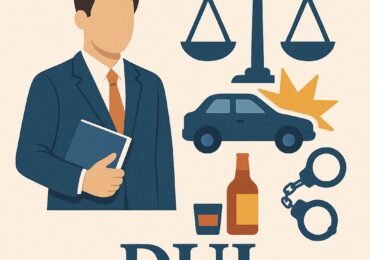When most people think about impaired driving, alcohol or illegal drugs likely come to mind. But an expert Scottsdale DUI Attorney points out there’s a less obvious culprit that flies under the radar — prescription and over-the-counter medications. Many everyday drugs, including those for anxiety, allergies, and pain relief, can significantly affect your ability to drive safely. The effects may be subtle, like delayed reaction time or blurred vision, but they can be just as dangerous as more well-known substances. Whether you’re managing a chronic condition or popping something for a temporary issue, it’s essential to know how your medications could impact your driving.
1. Benzodiazepines (e.g., Xanax, Valium, Ativan)
Benzodiazepines are often prescribed to treat anxiety, insomnia, and seizures. These medications work by slowing down the central nervous system, which can lead to drowsiness, confusion, dizziness, and slower reaction times. Studies show that benzodiazepine users are significantly more likely to be involved in car accidents, especially within the first few weeks of starting the medication. Even at low doses, these drugs can impair coordination and alertness, making driving risky.
Quick Tip: If you’re starting a benzodiazepine or adjusting your dose, avoid driving until you understand how the medication affects you.
2. Opioid Pain Relievers (e.g., Oxycodone, Hydrocodone, Morphine)
Opioids are effective for managing moderate to severe pain, but they come with a heavy side effect profile, especially for drivers. Drowsiness, dizziness, blurred vision, and impaired cognitive function are common side effects that can make operating a vehicle incredibly dangerous. Driving under the influence of opioids is considered a form of drugged driving and can lead to DUI charges.
Quick Tip: Even if your opioid prescription is legal, you could still face legal consequences if it impairs your ability to drive safely.
3. Antihistamines (e.g., Diphenhydramine, Chlorpheniramine)
Most people associate antihistamines with relief from allergies or the common cold, but first-generation antihistamines, like Benadryl, are notorious for causing drowsiness. They can also lead to slowed reaction time, poor coordination, and difficulty focusing, all of which impair driving performance. Newer-generation antihistamines (like loratadine or cetirizine) tend to cause less drowsiness, but caution is still advised.
Quick Tip: Always read the label. If it says “may cause drowsiness” or “do not operate heavy machinery,” take it seriously — your car counts as heavy machinery.
4. Sleep Aids (e.g., Zolpidem, Eszopiclone)
Medications designed to help you sleep — whether prescription or over-the-counter — can leave lingering effects the next day. Some sleep aids have a half-life that lasts well into your morning commute, leading to grogginess, impaired judgment, and delayed reaction time. Some users report “sleep driving” incidents, where they drive without memory of doing so, particularly with drugs like zolpidem (Ambien).
Quick Tip: Give yourself plenty of time to rest after taking a sleep aid. Avoid driving the next day if you feel groggy or “out of it.”
5. Muscle Relaxants (e.g., Cyclobenzaprine, Carisoprodol)
Used to treat muscle spasms or injuries, muscle relaxants work by depressing the central nervous system, similar to how alcohol affects the brain. These medications can cause extreme drowsiness, lightheadedness, and even confusion. Their effects are intensified when combined with other CNS depressants, including alcohol or other medications.
Quick Tip: Don’t assume muscle relaxants are harmless because they’re often short-term prescriptions. Always check with your doctor before driving on them.
Final Thoughts: Safety First, Steering Second
While medications are often necessary for health, they can come with unintended consequences, especially when it comes to driving. It’s easy to underestimate the effects of a pill you take regularly or view as “mild,” but impaired driving isn’t just about illegal substances. It’s about your ability to operate a vehicle safely under any influence. If unsure about a medication’s effects, talk to your doctor and play it safe behind the wheel. And if you ever find yourself facing legal consequences when using prescribed medication, don’t navigate it alone. Consult a qualified Scottsdale DUI Attorney who understands the complexities of drug-related driving laws and can help protect your rights.
